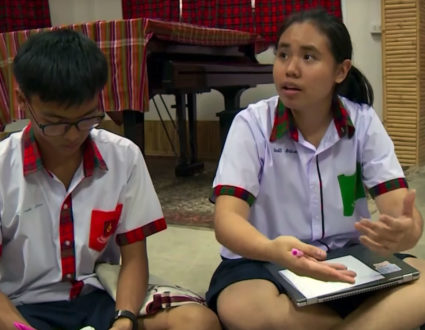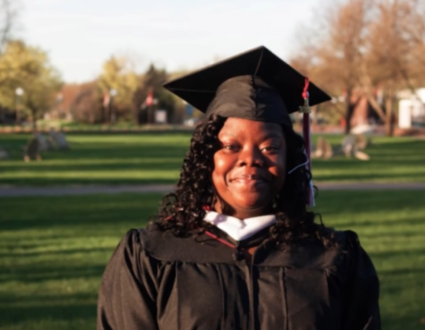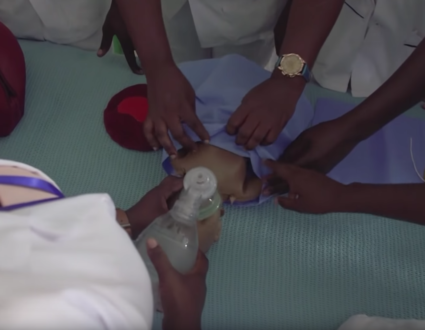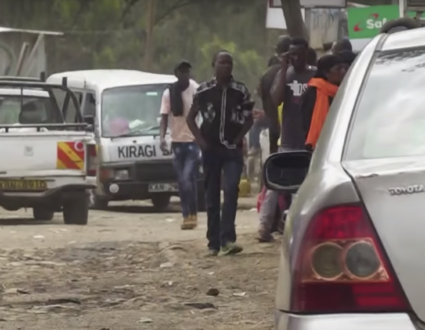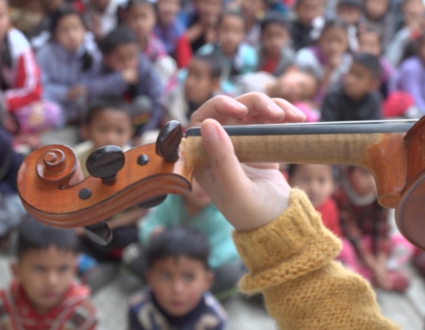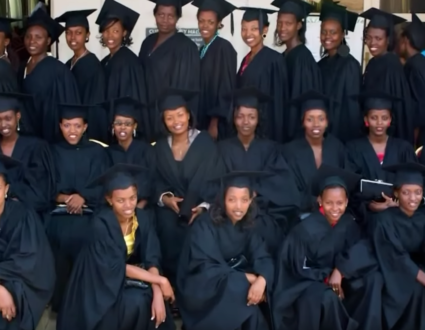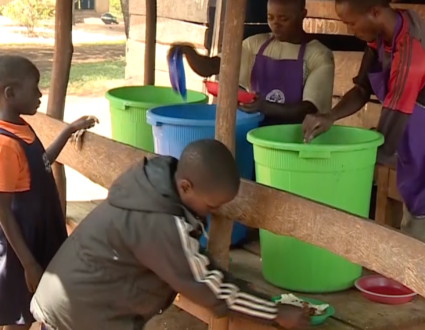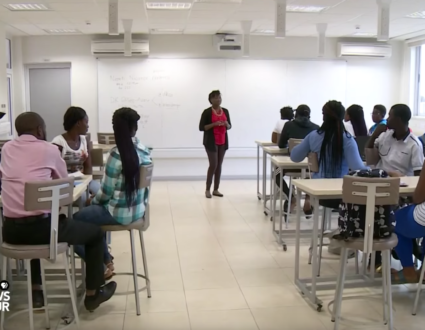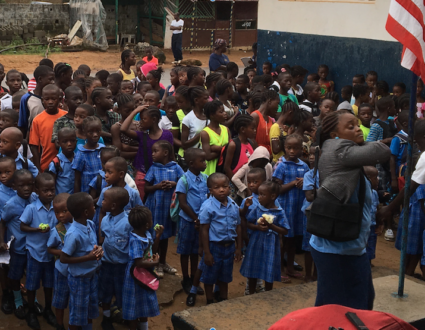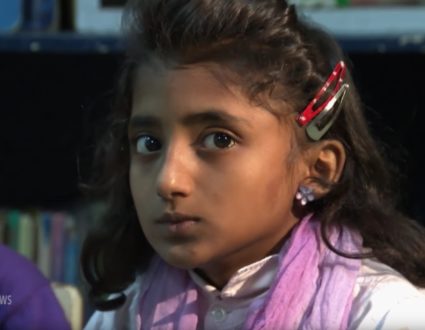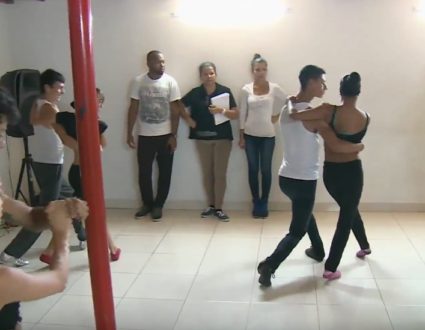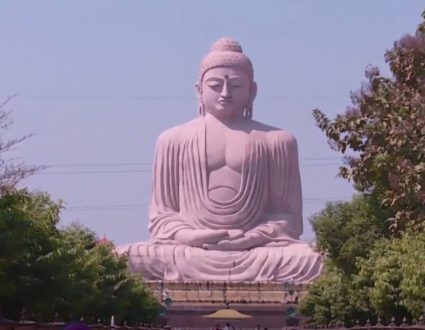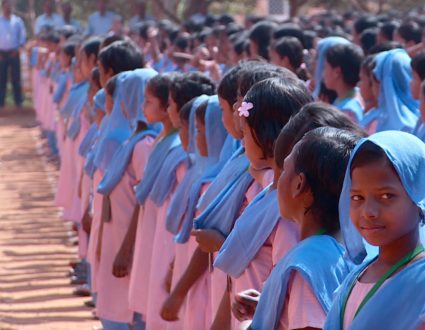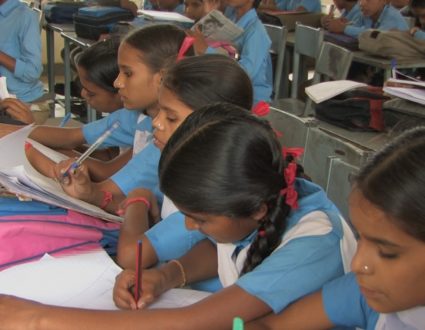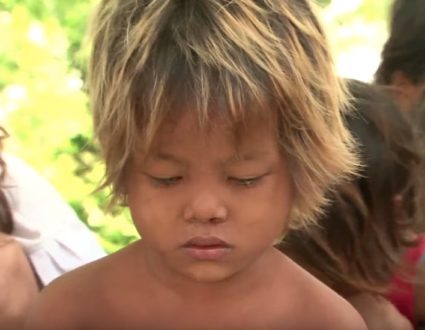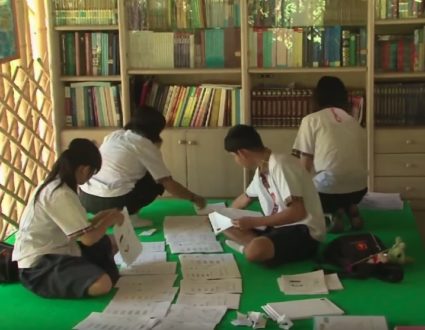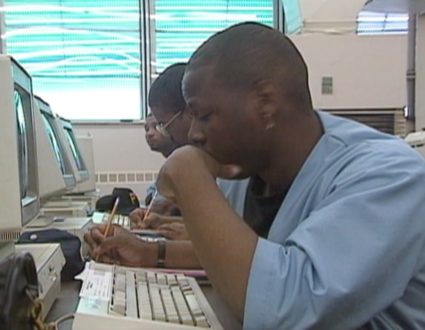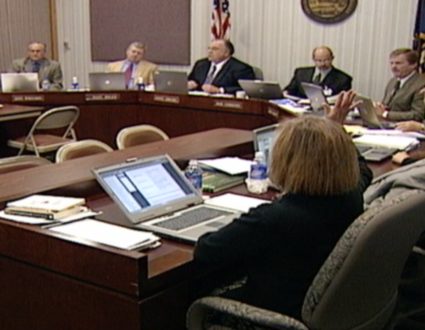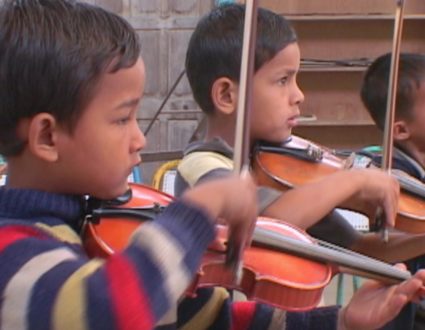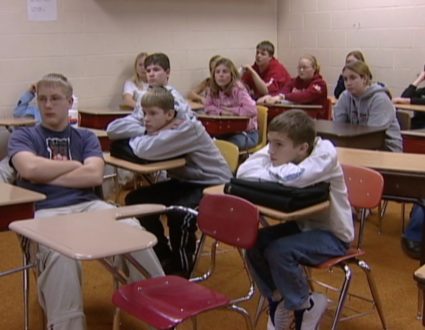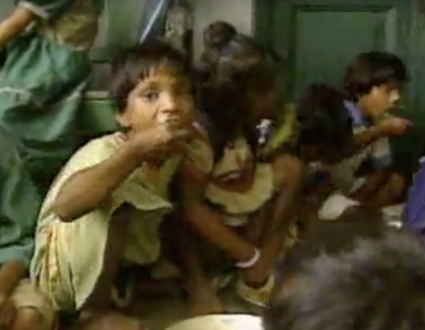GWEN IFILL: Next, helping homeless youth in Cambodia recover their childhoods and reach for a better future.
Special correspondent Fred de Sam Lazaro has our story.
FRED DE SAM LAZARO: Each day, workers with a group called Friends International try to redefine normal for street kids across Cambodia’s capital, Phnom Penh.
In makeshift gatherings like this one, part kindergarten, part clinic, the children come to get cuts and scratches tended, to play board games, or, a rare luxury, to shampoo their hair. Normal for these children is a grinding work routine, scavenging in garbage dumps or, if they’re lucky, peddling trinkets to tourists in this city of two million.
SEBASTIEN MAROT, founder, Friends International: You have about an estimated 20,000 children living and working on the streets of Phnom Penh. That is actually a huge number for a city like Phnom Penh, which is relatively small.
FRED DE SAM LAZARO: Sebastien Marot founded Friends International 18 years ago. It now serves 95 percent of this city’s homeless youth. A former French foreign service worker, Marot took a break to visit the region.
SEBASTIEN MAROT: I arrived in Cambodia first of April ’94, and found a situation that was very difficult to imagine when you see Cambodia today, no roads, no electricity, no running water. Everyone had guns and used them. It was — the Wild West was the best description possible, so not a place you want to stay. But what happened is that I met kids.
FRED DE SAM LAZARO: He says he was moved by the plight of so many hungry children and decided to stay and find a way to get them into productive lives and off the street.
Those streets are being transformed today. The old temples and new high-rises are being spiffed up to attract foreign tourists and investors. But Phnom Penh has also lured thousands of children and their families from the impoverished rural areas of a country still recovering from the genocidal Khmer Rouge era between 1975 and ’79, a period in which an estimated two million people died.
It’s a difficult existence. The children are often forced to support the family, or at least fend for themselves. For many, it’s a losing struggle, says Marot.
SEBASTIEN MAROT: The biggest problem we’re facing now is actually the — the serious increase in drug use in this population, which is relatively new. It started in late ’90s. There was no drugs before. And, suddenly, it exploded, and now 80 percent of the kids are using, some glue-sniffing, a lot of amphetamine, and heroin is increasing.
FRED DE SAM LAZARO: The government, struggling to control the flow of drugs from neighboring countries, has responded with a crackdown on the street. The police are always on the lookout for young people like these, most engaged in petty crime and prostitution to support their drug habits.
SEBASTIEN MAROT: The government needs to show that there is no more street kid, that the cities are clean, so they do — they destroy our building work by trying to get quick fixes. And that’s putting kids in prison. That’s cleaning the streets and putting people away, out of the eye. But that’s not a solution.
FRED DE SAM LAZARO: Friends International, better known in the Khmer language as Mith Samlanh, is also on the lookout for these youth, but with a very different approach.
GIRL (through translator): Mith Samlanh comes here and they educate us about HIV and drugs and so on. We don’t have enough to eat or a place to stay, so we take risks. We could be arrested.
FRED DE SAM LAZARO: Along with offering clean needles, condoms and lessons on safe behavior, Friends International counselors encourage these youth to come to a drop-in center for a meal or a bath, and, when they are ready, detox, a place to live and an education.
Twenty-three-year-old Sothea has lived on the street on and off for seven years. He has struggled with drug addiction, but returned to Friends for his fourth attempt to get clean and acquire job skills.
MAN (through translator): When I first came here, I wasn’t comfortable. I wasn’t ready for the learning environment, so I quit and went back out on the street to make money. Now the most difficult part is to try and keep myself away from drugs, from my friends on the street.
But I try not to go. I can quit drugs. I can stay away from these friends. I don’t want to let my parents down again or my very good friends here at the program.
FRED DE SAM LAZARO: If he finishes, he’ll have several options to develop marketable skills. Friends International offers training in everything from automotive mechanics to construction skills to hairdressing. Even after four attempts, Marot says there is a good chance he will eventually succeed.
SEBASTIEN MAROT: We haven’t found really any child that was a lost cause, if you want. We work very hard with many children for a long time to be able to — to get them to a level that was required, but we — were always reasonably successful.
FRED DE SAM LAZARO: Friends International started and runs three of Phnom Penh’s finest restaurants, training grounds for students and a source of income for its programs.
Seventeen-year-old Kunthea was recruited by Friends International on the street. She was selling flowers to support her family after her father died.
TEENAGER (through translator): My experience with Friends International has been great. Now I can read. And I love cooking the most.
FRED DE SAM LAZARO: But having Kunthea enter a training program meant she was no longer able to help support her family. She still lives at home with her mother and three siblings.
So an important part of the Friends International approach is to help not just the youth, but also their parents. It now employs Kunthea’s mother, Sok Chenda, to sew handicrafts that are sold in its boutique, another business that funds Friends International programs.
SOK CHENDA, mother of student (through translator): Friends International helped me a lot. Without them providing me training and vocational skills, I could not feed my four children.
People say, why do you put your kids in Friends International? They won’t make any money. Better to take your daughter to work in the garment industry, so she can make money.
But I don’t. My children will have a better further than me.
FRED DE SAM LAZARO: Many graduates of Friends International have already gone on to a better future. In two years, Darun Rin says he picked up culinary and interpersonal skills and even a bit of English.
DARUN RIN, restaurant owner: They trained me how to — like to cook the food, to serve the food to customer, and how to talk friendly.
FRED DE SAM LAZARO: Darun Rin got a job as a chef for the Singaporean ambassador, then went on to open his own restaurant, and is thinking of more.
DARUN RIN: To have maybe one more or two more. So, see, my plan like that, but we don’t know yet. Let’s see.
FRED DE SAM LAZARO: For every success story, however, there are many young people still struggling. Marot says the best shot at success is to intervene as early as possible in children’s lives, to provide early childhood education before they can fall victim to drugs.
All this costs money. Restaurants and craft shops pay for about a third of Friends International’s $6.5 million annual budget globally. Marot says it will take years to become self-sufficient and, until then, programs like these will depend on donations. Those have been hurt by the global economic slowdown.
SEBASTIEN MAROT: The current crisis is such that many of our donors just are not renewing contracts, have reduced their amounts, have less proposals than before. Luckily, we have these profits from the businesses that allow to bridge some, but that goes only that far, because our sustainability is — is limited.
FRED DE SAM LAZARO: There are people watching who will say, you know, why doesn’t the national government help you?
SEBASTIEN MAROT: Yes. And that’s a very good question. In some countries, this is feasible. Say, for example, we should be able to access money from the Thai government, from Indonesian government. Cambodia, the budgets are not — they’re so donor-dependent themselves as a government.
FRED DE SAM LAZARO: Despite the funding challenges, the program now operates in eight countries in Southeast Asia and Central America, serving some 60,000 young people. And Friends International was recently invited to start a program for the first time in the United States. It will be in Las Vegas.
GWEN IFILL: Fred’s reporting is a partnership with the Under-Told Stories Project at Saint Mary’s University in Minnesota.
Recovering Childhood
From Cambodia, special correspondent Fred de Sam Lazaro reports on one group, Friends International, and its efforts to help homeless children and their families have a brighter future through education, shelter and health services.

In makeshift gatherings like this one, the children come to get cuts and scratches tended, to play board games, or, a rare luxury, to shampoo their hair.
Normal for these children is a grinding work routine, scavenging in garbage dumps or, if they’re lucky, peddling trinkets to tourists in this city of two million.

“The most difficult part is to try and keep myself away from drugs, from my friends on the street… I don’t want to let my parents down again or my very good friends here at the program.”
“We haven’t found really any child that was a lost cause, if you want. We work very hard with many children for a long time to be able to — to get them to a level that was required, but we — were always reasonably successful.”








